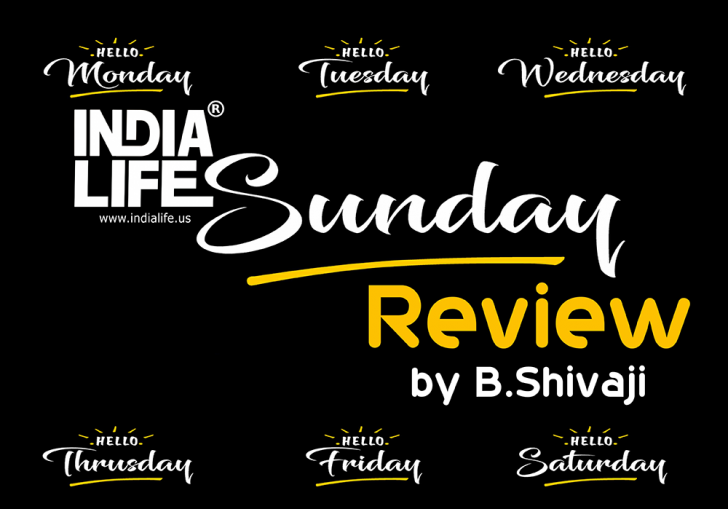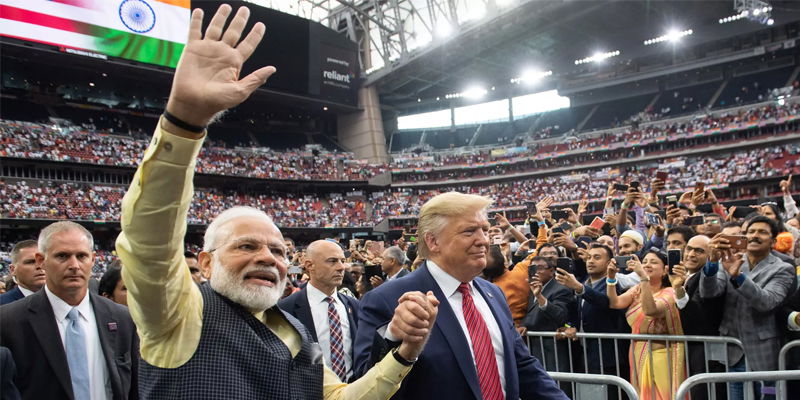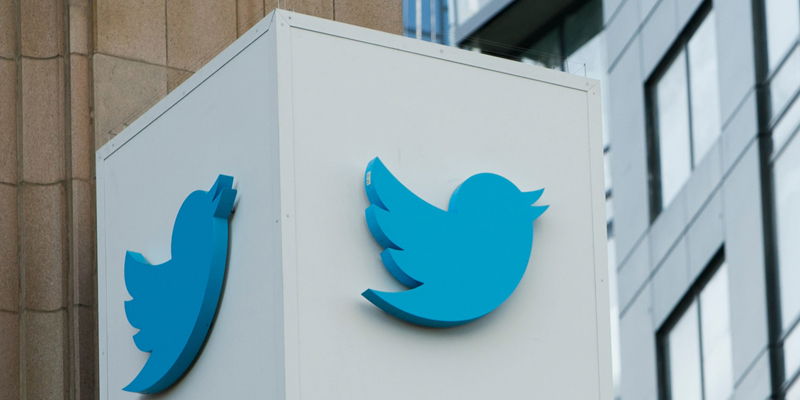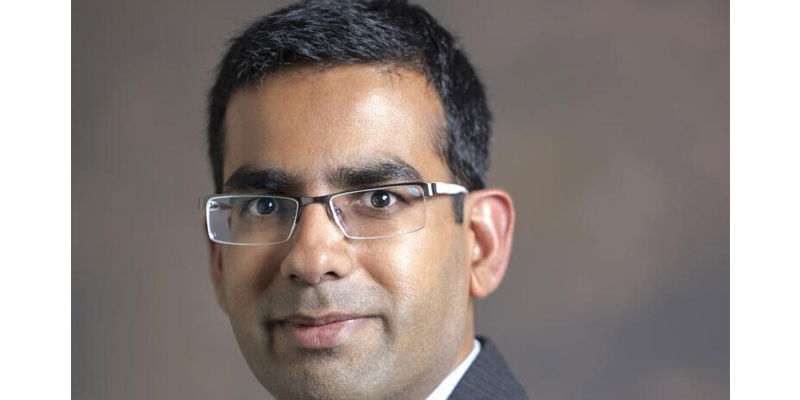Headlines
IndiaLife Sunday Review by B.Shivaji

IndiaLife Editorial Modi revisits India’s vaccination policy Bimal Shivaji Indian Prime Minister on June 7, during his Maan Ki Baat on June 7, 2021, announced that the government would revert to a system of centralized procurement of COVID-19 vaccines wherein it will provide free shots to states for inoculation of all above the age of 18 from June 21. What was the sudden trigger for the revised vaccine policy? Let us go back a few months to the start of the vaccination drive for COVID-19 in India. The country began its vaccination program on January 16, 2021, and since then until April the country shipped 66 million doses, according to government data. That is enough to vaccinate the whole of Delhi, Mumbai, and Kolkata. In April, as the country’s Covid-19 crisis turned from bad to catastrophic level, two million doses were shipped abroad. In April 22, India broke the world record for fresh cases on a single day. As I write this (on June 13), the fresh cases of coronavirus in the last 24 hours registered its lowest since the day at 80,834 new cases. On Saturday, over 3,300 deaths were reported. On June 7, Mr. Modi said, “Twenty-five per cent of the vaccination work with states will now be handled by the Centre; it will be implemented in the coming two weeks. Both State and Centre will work as per new guidelines in the coming two weeks,†Modi said. He also announced that from June 21, all citizens above the age of 18 years will get free vaccines, and asserted that vaccine supply would be increased significantly in the country in the coming days. “Work on producing an intranasal vaccine for COVID is also happening,†he said. Even as the States, irrespective of the various political parties ruling it, welcomed the move and congratulated, the Prime Minister, it would be timely to recall that this revision of the vaccine policy was forced by the Supreme Court. The NDA Government’s earlier move had placed the onus on the state governments to vaccinate the citizens as it had decentralized procurement of vaccines and passed the burden of vaccinating the 18-44 years segment to the state governments. The Central Government, after the first wave of the pandemic had subsided, was a little lax in their guard and wasted time preparing for a second wave despite warnings by experts. It also failed to recognize the urgency of accelerated vaccination. The government was over-zealous in protecting the two domestic manufacturers and their profits. It failed to place the first order the Serum Institute early enough and the order was only for 1.1 crore doses. It also was slow to give a special grant or subsidy to SI to augment production despite The NDA government formulated and implemented its earlier vaccination policy unilaterally without any consultation with the state governments. The Supreme Court has held that the vaccination policy was “arbitrary and irrationalâ€. The Central government also floundered in fixing different prices for supply to the Central government, state governments and private hospitals. Price differential led to large quantities being sold to private hospitals at the cost of government hospitals, leading to vaccine shortage and suspension of vaccination in some states. The government’s insistence on Co-WIN app for registration and vaccination was discriminatory. The Supreme Court has held that the insistence on Co-WIN created a digital divide and was discriminatory. Do you think the Prime Minister had a sudden change of mind and became benevolent enough to give vaccines away for free? No. The Supreme Court in its order of May 31, 2021, directed the central government to file an affidavit, to provide information regarding various issues related to the catastrophic COVID-19 pandemic, with emphasis on its vaccination policy, to be submitted by June 15. Interestingly, the SC has also specifically stated that, while filing its affidavit, the center should “ensure that copies of all the relevant documents and file notings reflecting its thinking and culminating in the vaccination policy are also annexed on the vaccination policy.’’ This order prompted Mr. Modi to reverse the government’s vaccination policy. Earlier, the court had also given detailed orders to the government to make transparent/modify, the supply of essential drugs, supply of medical oxygen, the Co-Win App amongst other issues, after the center had placed its say before the court. The SC order dated 6th May constituted a National Task Force to provide a public heath response to the COVID-19 pandemic on the basis of a scientific approach. Importantly, the Supreme Court order has also brought to the notice of the center the grave digital divide between rural and urban India and has sought clarification on vaccination drives through the CoWin App which is not accessible to all citizens of India. Even as we welcome the change in vaccination policy, the Central Government should recognize that it needs to take steps to boost production of vaccine as further worsening of the pandemic would cost the country dear and a recovery from the social and economic losses would require decades to overcome and a blot on the nation. Magic of Howdy Modi lingers on Even as we discuss the woes of the Modi Government back home, it is quite interesting to note that the Bharatiya Janata Party (BJP) is the most popular Indian political party among Indian Americans. According to Indian American Attitudes Survey published by the Carnegie Endowment for International Peace in association with Johns Hopkins University and University of Pennsylvania, 32 percent of Indian Americans surveyed said they identified closely with the BJP and only 12 percent with the Congress Party. But 40 percent of those in the survey said they did not feel close to any Indian political party. Interestingly, 75 percent of Indian Americans said that they were "pro-India,†but their attitudes to the Indian government varied sharply with 58 percent critical of the government to some degree. The survey of 1,200 Indian Americans was conducted in September last year by YouGov and the analysis by a group of experts was published recently. June 9. Forty-nine percent of Indian Americans rated Prime Minister Narendra Modi's performance favorably, with 35 percent giving strong approval. However, 31 percent disapproved of his record, with 22 percent expressing strong disapproval. Modi got 58, the BJP 57, the Rashtriya Swayam Sewak Sangh 46, and the Congress Party 44; Rahul Gandhi lagged at 38. A majority of Indian Americans surveyed, 69 percent, said they opposed the use of sedition and defamation laws to silence reporters critical of Modi. The National Register of Citizens, which is to identify "non-citizens, was opposed by 55 percent of the respondents. Indeed, Mr. Modi can take heart in the fact that his image hasn’t taken much of a beating since his ‘friend’ Donald Trump left the Oval Office. The magic of ‘Howdy Modi’ is yet to wear off completely. Another compatriot recognized It is heartening to note that Indian Americans are continuing to gain recognition in various spheres in the United States. The National Science Foundation Faculty Early Career Development, or CAREER, Award given by Ohio University recently to Sumit Sharma, assistant professor of chemical and biomolecular engineering in Ohio University’s Russ College of Engineering and Technology, is another of those recognitions to the ever-growing community that enriches the rich social fabric of the country. The university said that Sumit Sharma will use the five-year, $511,902 grant to study the absorption behavior of surfactant, or soap-like molecules on metallic nanoparticles, the university said. Mr. Sharma has said that the award was an important recognition and that it was an amazing feeling to be among the researchers in the United States who have received the CAREER Award. Mr. Sharma was also awarded a $450,000 grant from the NSF for a collaborative study he is leading to identify molecules that are able to inhibit protein-protein interactions. Here is wishing Mr. Sharma all success in his pursuit of his experiments. It would be appropriate to note here the Pulitzer Award won by Megha Rajagopalan and Neil Bedi on Saturday. Indian laws frustrate US tech firms India’s Information Technology (Intermediary Guidelines and Digital Media Ethics Code) Rules, 2021, has been creating trouble for US social media companies operating in the country. Twitter, the Government of India, said had failed to comply with the new rules that are aimed at making social media firms more accountable to legal requests, and therefore risked losing liability exemptions for content posted on its platform. Twitter joins Amazon.com, Facebook and WhatsApp in long being at loggerheads with the administration of Prime Minister Narendra Modi over data privacy bills and policies. Police visited Twitter’s offices in Gurugaon in May to notify it of a probe into the tagging of a political tweet as “manipulated mediaâ€, and in February interrogated an Amazon official about the potentially adverse social impact of a political drama. Some top executives reportedly said that some of the firms’ are reviewing their longstanding plans to make India the hub of their operations. The government of India formulated these rules to stem the spread of misinformation that can spark violence. It also said the rules are necessary to hold large technology companies accountable for practices that hurt domestic businesses or compromise customer privacy. India is a huge market for US tech giants. It is the biggest market for both Facebook and WhatsApp by user numbers, and Amazon has committed as much as $6.5 billion to invest in the country. To attract small businesses through WhatsApp, Facebook last year invested $5.7 billion in Reliance Industries Ltd’s Jio Platforms. Google also pumped $4.5 billion into Jio last year from a newly created $10 billion fund earmarked for investment in India over five to seven years. The Modi government attracts high-tech investment and also pursues policies aimed at protecting local businesses to advance its political agenda. Chinese social media apps, including TikTok and WeChat, were banned last year after a border confrontation with China. The government has also forced foreign firms to store data locally against fierce lobbying. It is probably Twitter’s public refusal to comply with some government demands to remove content that likely aggravated its current situation. A prolonged legal tussle could hurt Prime Minister Modi's ambition of making India a go-to investment destination.







































